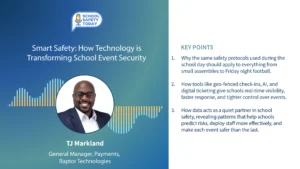Study Shows that Many Educational Institutions Lack Broadband Support
The Minority Serving-Cyberinfrastructure Consortium, or MS-CC, recently released troubling findings regarding the state of minority-serving educational institutions in the United States.
The Consortium, along with Internet2, conducted a survey that found that Hispanic-serving Institutions, Historically Black Colleges and Universities (HBCUs) and tribal colleges and universities were falling behind in terms of broadband infrastructure, workforce training and development investments.
It’s not an isolated trend, either – nearly half of the U.S.’s HBCUs and almost all tribal colleges and universities participated in the survey.
The findings are particularly concerning in the wake of the COVID-19 pandemic, which has thrust remote connectivity, broadband access, hybrid learning and more to the forefront across the world’s educational landscape.
To discuss the implications of this survey and how the U.S. might begin working to address these inequities, Voice of B2B Daniel Litwin invited Kevin Hogan, host of MarketScale’s EdTech Today, onto this Industry Update.
The duo tackled the state of connectivity, equipment, security and access to technology among these institutions, the role collaboration and engagement must play in addressing shortcomings, the need for accessible and responsible data infrastructure for campus operations, and more.
How can edtech companies encourage more deployments? What sort of national mobilization is needed to tackle compounding issues of access? Listen in to find out.








